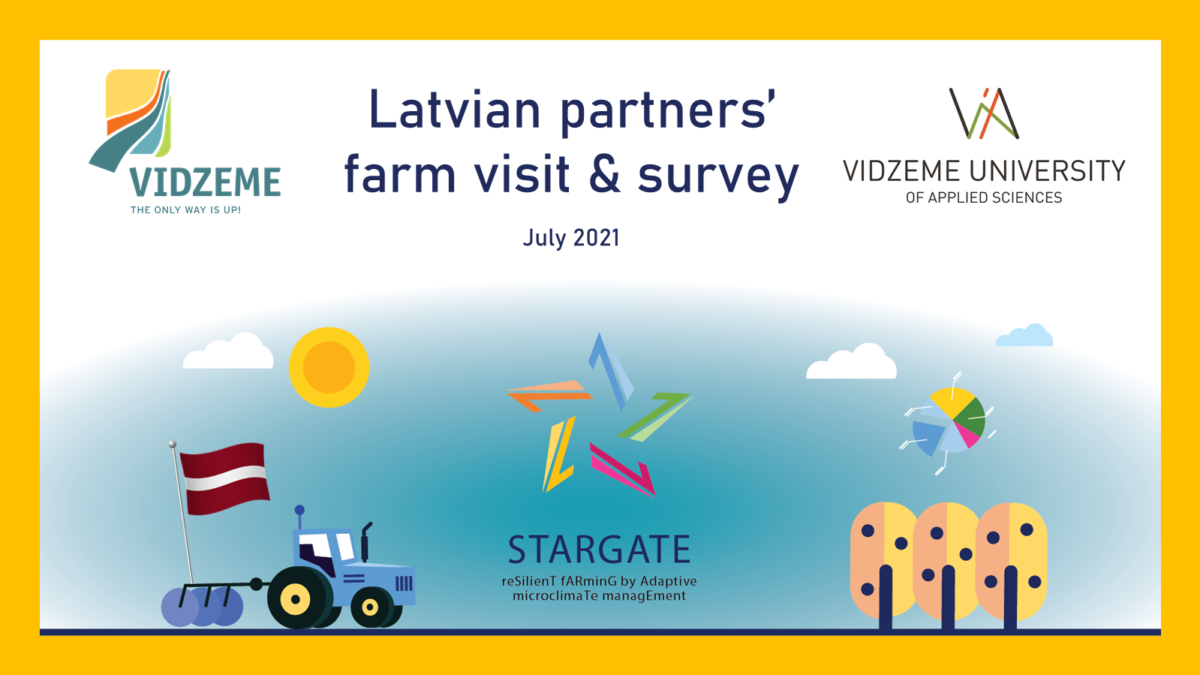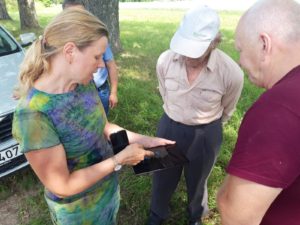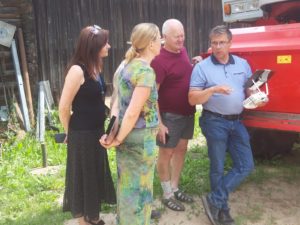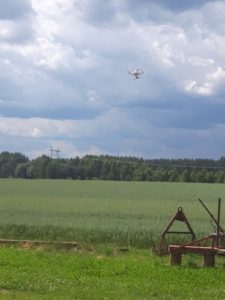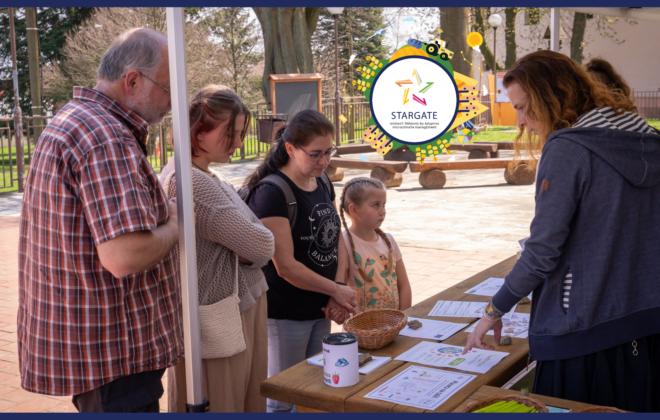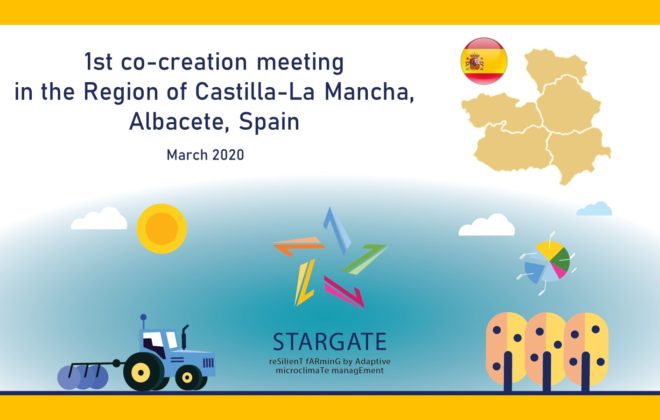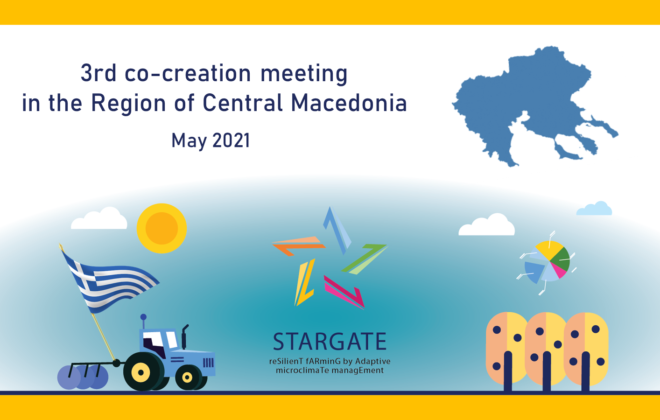STARGATE visits farms and conducts potato field surveys
At the beginning of July, representatives of Vidzeme Planning Region and Vidzeme University of Applied Sciences visited Vaitalas farm (Valmiera county, Latvia) and questioned the farmer about the most important challenges in potato growing in Vidzeme, as well as conducted demonstrations with an unmanned aerial vehicle (drone) to show and tell about the possibilities provided by such technologies.
During the visit, flights were performed over the field with a multispectral camera, which shows the proportion of healthy hops in the field, as well as identifies places where damage to plant hops is expected. During the drone flight, the Normalized Difference Vegetation Index (NDVI) was also determined. NDVI is a graphical indicator that can be used to analyze remote sensing measurements. This helps farmers to get an overview of crop development in the field remotely. Technologies help to analyze data over time to identify potential problems with plant growth in a particular part of the field.
During the STARGATE project it is planned to develop a tool that, by analyzing various data, would allow potato growers to forecast potential yields, while pointing out problems that could reduce the expected yield. It is currently planned that the tool will take into account various parameters – weather conditions, soil moisture and temperature, leaf index, solar radiation, weight of planted potatoes, soil type, etc.
The farm visits organized this summer in Vidzeme region will be repeated with field surveys at different stages of crop development. Vidzeme University of Applied Sciences will use the obtained data for modeling the technological tool, while farms will be the first to test the ready tool. It is planned that Vidzeme University of Applied Sciences will develop the technological tool and it will be ready for testing in 2022.
Farmers` observations on organic potato growing…
Organic potatoes are grown on the 6-hectare farm “Vaitalas”, the average yield is 18 tons per hectare. According to Juris Miķelsons, the owner – “every year it is problematic to ensure the minimum yield, at the same time, if there is overproduction, then the potatoes are bought at lower prices”.
Given that organic farming has very high restrictions on the use of synthetic fertilizers and pesticides, there is little scope for enriching the soil and controlling diseases and pests. J.Miķelsons is convinced that this is the reason why the number of organic potato growers is decreasing. “Potato growing is becoming increasingly unprofitable – it can no longer be a main job, because the income does not cover the expenses. In Latvia, organic farmers have much stricter requirements than elsewhere in Europe.
The fight against pests, especially colorado potato beetles and their larvae, which are very numerous this year, is not successful. The farmers acknowledge that this would be a direction where technology should help, and believe that without expanding the list of permitted plant protection products, organic farming will decline.
Asked what other challenges have been observed in potato growing, farmers say that information on what nutrients are lacking in the soil and to what extent would be very useful to know what to do next.

